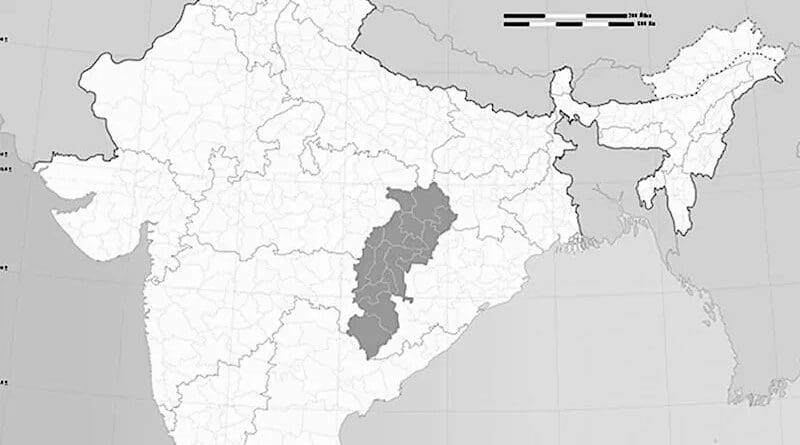Is ‘Human Rights’ Making A Comeback To Chhattisgarh’s Counter-Naxal Doctrine? – Analysis
Regime changes often are harbingers of major policy shifts. The Congress party which ended the Bharatiya Janata Party’s (BJP) 15-year rule in Chhattisgarh state in the elections to the legislative assembly held in November 2018 has the ability to revisit the counter-left-wing extremism policy pursued by the previous regime. Before the polls, the party’s leaders had critiqued the government’s poor record of human rights while pursuing the left wing extremists. Now in the seat of power, will the Congress party walk the talk remains a big question.
In 2003, BJP’s Raman Singh became the chief minister of Chhattisgarh. That year, 256 left wing extremism (LWE) related incidents accounting for 74 deaths were reported. A couple of years later, as the Communist Party of India-Maoist (CPI-Maoist) lost its base in neighbouring Andhra Pradesh, Chhattisgarh became the worst LWE affected state in the country. The worst level of violence in the state was recorded in 2006, accounting for 715 incidents in which the deaths of 388 security forces and civilians were reported. In comparison, 355 incidents and 138 deaths were reported in 2018 (till 15 November). While this could be seen as a tremendous success in limiting the violence potential of the extremists by the Raman Singh government, a look at the fatalities for the last five years tells a different story.
From 2012, fatality figures have hovered around the 100 mark before increasing to 130 in 2017 and 138 in 2018, thereby indicating that while the state government was successful in denting the expansion plan of the Communist Party of India-Maoist (CPI-Maoist) and its overall violence potential, it struggled to make any further gains once the outfit retreated to its core areas and began carrying out selective acts of violence. The pressure on the security forces to eliminate the remaining problem by any means, for which Chief Minister Raman Sigh had set multiple revised deadlines, resulted in some of the worst human rights violations.
The targets of the state’s bid to end LWE were not just the armed extremists, but also the civilians, NGOs, and media personnel whom the state establishment described as overground workers or sympathisers of the CPI-Maoist. Previous commentaries by this author have dealt with specific cases of abuses. Undoubtedly such acts not just brought negative publicity for the state government but have also enormously harmed its project of expanding its acceptability among the tribal population, who are considered to be the primary constituency of the extremists. Hue and cry over such a campaign led to cosmetic changes. However, the BJP was in no mood to change course. In fact, Prime Minister Narendra Modi, during his election rallies in Chhattisgarh, called for teaching a lesson to the ‘Urban Maoists’and had questioned the Congress party’s ‘sympathetic attitude’ for the latter.
The Congress party, which has now inherited the problem a weakened and yet potent extremist movement, now has the onerous task of dealing with it. One can argue that the new government can simply continue the strong-arm strategy of the previous government. On paper, this will be a convenient strategy to implement. However, that is easier said than done. The Raman Singh government had received overwhelming support from New Delhi in terms of deployment of Central Armed Police Forces and security related expenditure allocation. Such privileges may no longer be available to the new Congress government in the state. Any increase in violence would be interpreted by the BJP as a failure of the Congress government.
The Congress party, in its election manifesto had promised to initiate talks with the CPI-Maoist. In December, Chief Minister Bhupesh Baghel, in an interview with The Hindu, however, dismissed the prospect of negotiating with the extremists and promised to talk only to the victims of naxalism. He promised to pursue a ‘political, economic and social approach’ and ‘evaluate and reform’ laws that unlawfully targeted the journalists. Earlier, the newly appointed police chief of the state had assured that “there would no human rights violations,” that a “bullet can be fired only when it is fired from the other side.” He also said that journalists and activists doing their jobs in the affected areas should be encouraged. On 20 March, Chief Minister Baghel again asked officials and security forces to take care of rights of citizens while carrying out anti-LWE operations. Although extremist violence has demonstrated no signs of abatement, a change in the state’s policy is perceptible.
The new approach, however, can easily come under strain. A big attack by the extremists on the security forces and the civilians may force the state government to resort to security force operations that do not discriminate between armed extremists and their so-called supporters. It is therefore important that the concern for human rights is accompanied by policies that includes modernisation of the state police force, improvement of human intelligence, and lessens reliance of the security forces on vigilantes and irregular forces. Political involvement of the tribal population must be increased and implementation on development activity in the extremism affected states should be closely monitored, with the overall aim of increasing the legitimacy of the government among the tribal population.
After 15 years of force centric counter-LWE approach, Chhattisgarh has the unique opportunity to reshape the country’s counter-extremism doctrine. Delivery capacities of Chief Minister Baghel would be closely watched on this front.
This article was published by IPCS

